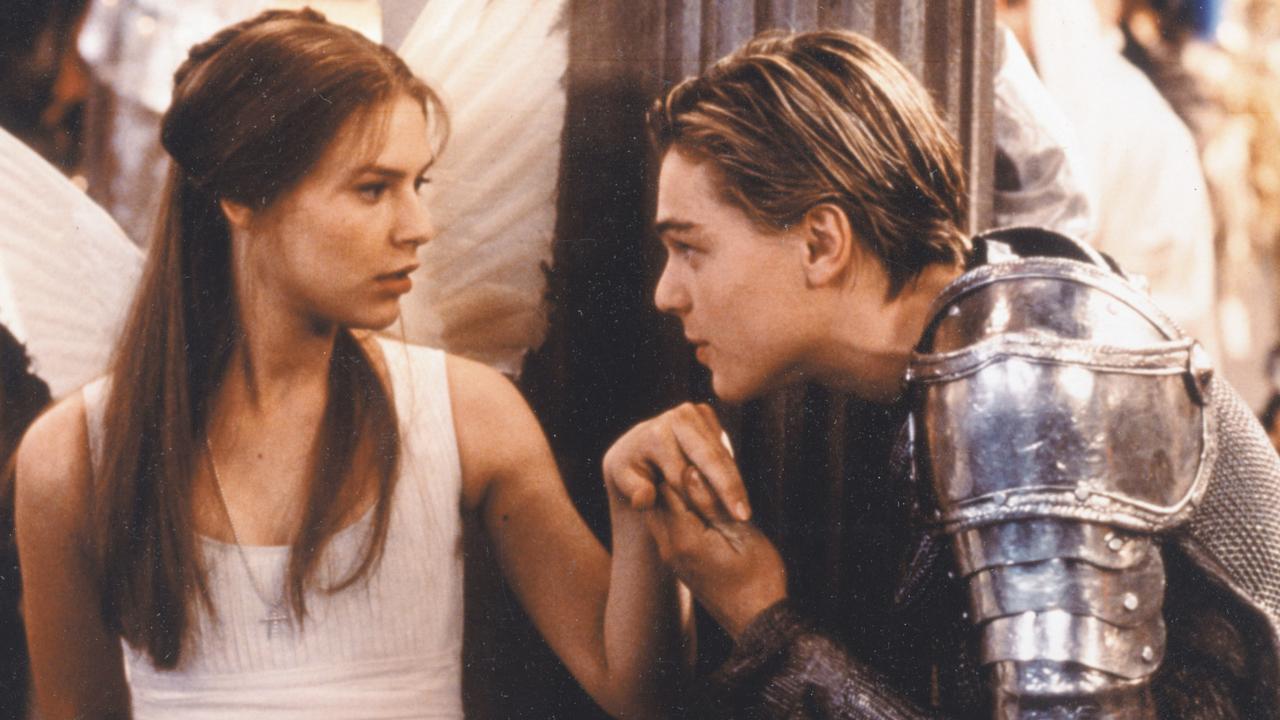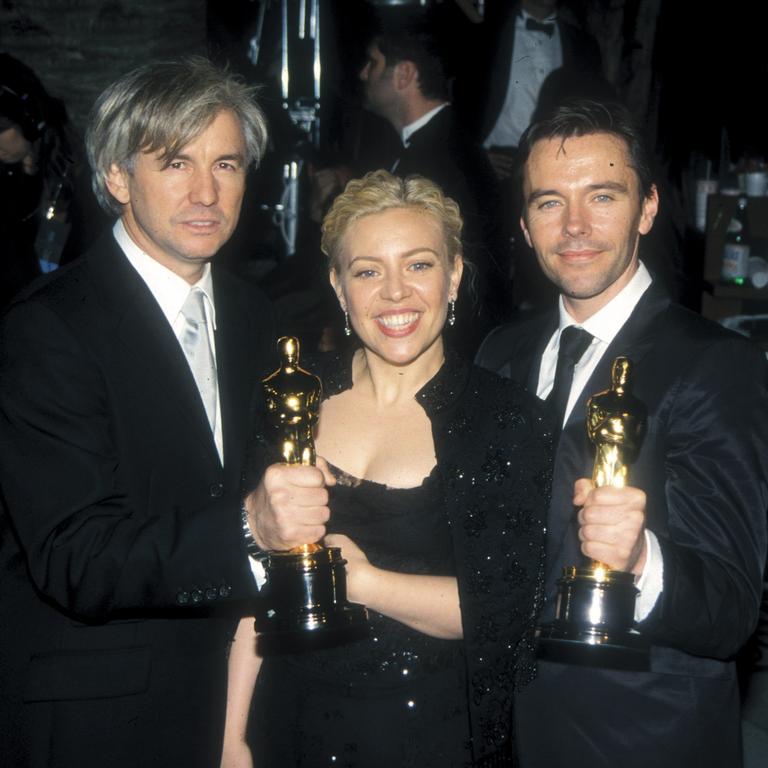What Leonardo DiCaprio really thought of Romeo + Juliet 25 years ago
It was the film that catapulted him to superstardom, but a young Leonardo DiCaprio had some choice words for Baz Luhrmann and the team behind the blockbuster Shakespeare adaptation.
When Baz Luhrmann’s film version of Romeo And Juliet erupted onto cinema screens in 1996, it captivated audiences across the globe, becoming an instant cult-classic as well as a box-office smash.
More than any version that had come before, this portrayal of Shakespeare’s star-crossed lovers set in contemporary America was opulent, violent and sexy, and it made household names of its stars, then 21-year-old Leonardo DiCaprio and 17-year-old Claire Danes.
Now, ahead of its 25th anniversary, screenwriter Craig Pearce takes Stellar on a trip down memory lane to determine why the film is still as impactful today as it was in the ’90s.

William Shakespeare’s Romeo + Juliet broke box-office records worldwide. How did it feel to know you had made Shakespeare accessible for so many people who might not have been interested in the Bard?
Baz and I have a really strong love of Shakespeare, and we’re both from quite suburban backgrounds and have always hated the elitist thing where people put up barriers to Shakespeare to prove how clever they are.
The stories are fundamental to the human condition – everyone can relate to them if they’re presented in the right way. That was our mission, to share what’s so amazing about Shakespeare with a broader audience. That’s why you make stories – to connect with people.

How did you take one of the most renowned, beloved and reworked stories in history and make it fresh?
It was an incredibly daunting prospect. Shakespeare is often a sacred cow, so we knew there would be people who didn’t like what we had done. But we just followed a path we believed in. We used to joke that the critics would call us “the Butchers of The Bard” – so we figured we would just own that idea.
We even had caps made with that embroidered on it, which we’d wear while we were writing! One of the first things we did was read the play aloud to each other in American accents, because that immediately smashed through the perceived, slightly pretentious, elevated language.
We wanted to connect with popular culture, and for many people around the globe, pop culture means American culture.
You’ve co-written some of Luhrmann’s biggest blockbusters, including Strictly Ballroom (1992), Moulin Rouge (2001) and The Great Gatsby (2013). When you first met, at high school, did you know you’d found a great creative match?
We became really good friends in Year 11 when we were cast in the lead roles of the school play, which was Guys And Dolls. I was very interested in storytelling – theatre, plays, novels and movies.
When I discovered that Baz was also passionate about all of those things, we connected immediately. A big part of our friendship was telling each other stories, trying to make each other laugh. Looking back, I suppose there was a certain inevitability about it, but we didn’t know it at the time.

Romeo was the role that catapulted Leonardo DiCaprio to super-stardom, and made him the ultimate pin-up boy for teens everywhere. Did you write the script with him in mind?
At the time, Leonardo hadn’t done Titanic, so he wasn’t a household name yet. But he had been nominated for an Academy Award for the 1993 film What’s Eating Gilbert Grape, so he was on the radar as a really exciting, emerging young actor.
We couldn’t think of anyone else who would be able to play the role like him – you could see that he was this phenomenal artist.
And was he interested straight away?
We persuaded him to come to Australia to do a workshop while we were writing the screenplay. He didn’t know if he wanted to commit to the film or not yet because it sounded so strange – Shakespeare with guns and cars.
At that time, the script was still a bit ridiculous, too; it wasn’t really a world that you believed could be a functioning society. Afterwards, he was like, “It’s kind of really cool when you’re not trying to be cool, but when you’re trying to be cool, it’s not.”
He was right [laughs]. So we wrote for months more, he came and did another workshop, which we filmed and this time we’d got it.

Looking back, a quarter of a century on, are you proud of the film’s legacy?
I feel very lucky and extremely privileged to be part of that timeless storytelling. I know the story will continue to go on and be reinvented again and again for future generations, because it has something very important to say, which is that hate only ultimately brings about destruction.
And with so many things going on in the world at the moment, I think that’s something we have to keep reminding ourselves of.
MORE STELLAR
Sigrid Thornton on the ‘great joy’ of ageing
The subject Jacki Weaver doesn’t want to touch
More Coverage
Originally published as What Leonardo DiCaprio really thought of Romeo + Juliet 25 years ago




